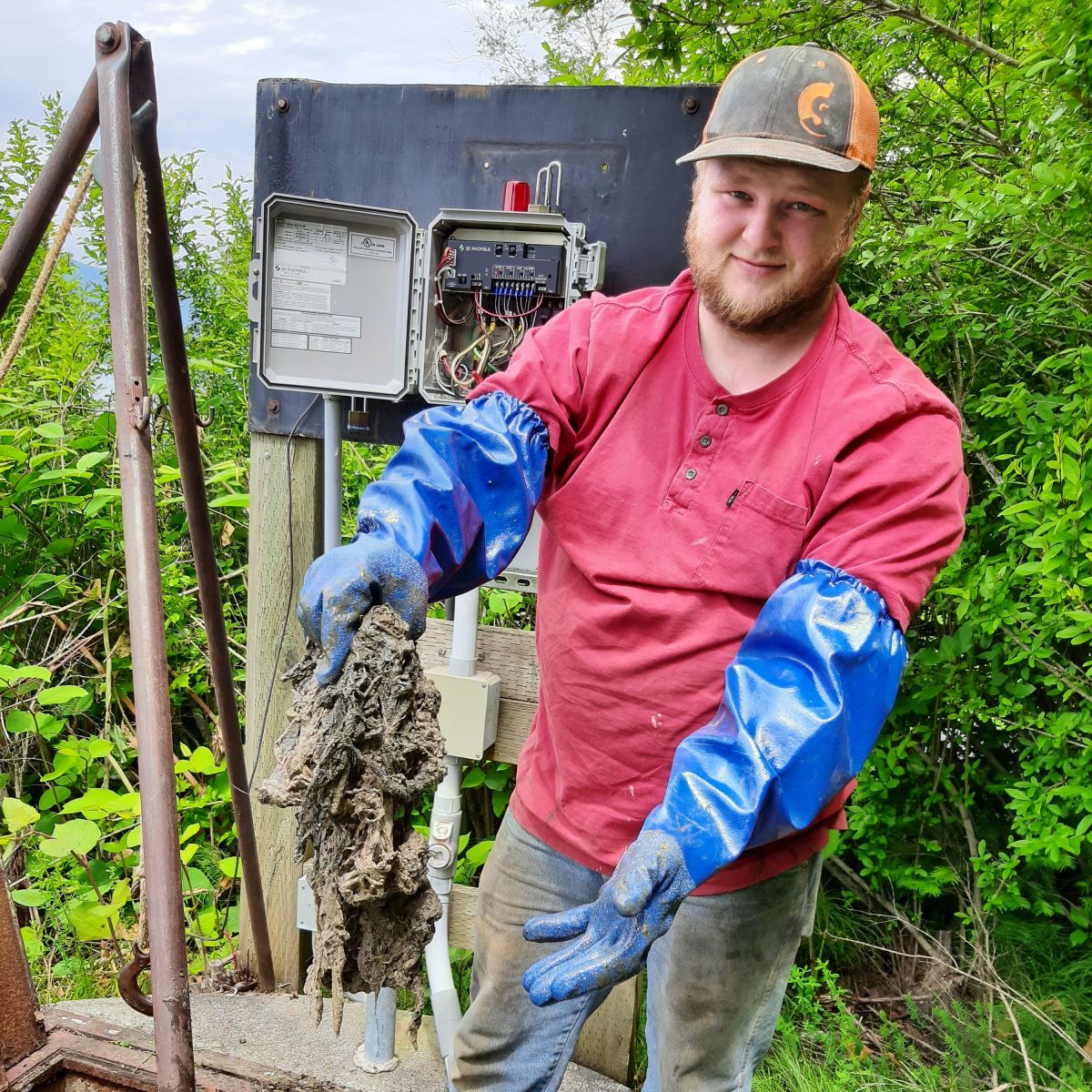To Flush or Not to Flush?
April 18, 2024

It's a delicate subject, but this is the truth: Only human waste and toilet paper should be flushed down your toilet. However, our wastewater treatment professionals find a wide variety of items in our sewers and collection facilities, including cell phones, toys, and, unfortunately, a lot of wipes and grease.
The following is a short list of materials that should never be disposed of in kitchen and bathroom sinks, or down your toilet.
Personal Care, Cleaning and Miscellaneous Items:
Unlike toilet paper, which breaks down quickly in water, personal, baby and cleaning/disinfecting wipes remain intact and tangle into massive clogs that jam pumps and block pipes. Even those labeled "flushable" should not be flushed.
Here’s a list of a few other items that cannot be recycled and should always be disposed of in a trash receptacle:
- Diapers and baby wipes, even those labeled "flushable"
- Tampons and sanitary pads, personal care wipes
- Cleaning/disinfecting wipes and disposable toilet brushes
- Paper towels and tissues
- "Disposable" contact lenses
- Cigarette butts
- Dental floss and toothpicks
- Cat litter
Please do not pour oil and grease down drains or toilets.
Fats, Oils, and Grease (FOG) is the number one cause of sewer blockages in homes. It cools as it travels through pipes and, over time, the accumulation of Fats, Oils, and Grease (FOG) can block pipes, contribute to clogs and, eventually, cause raw sewage to back up into your home, lawn, neighborhood and streets.
Fats, Oils, and Grease (FOG) come from meats, butters and margarine, lard, food scraps, sauces, salad dressings, dairy products and cooking oil.
The solution: allow fat, oils and grease to harden in a can or carton and then dispose of it in your garbage. If you have a lot of grease, you can recycle it.
Pharmaceuticals:
Never flush prescription or over the counter (OTC) medicines down a toilet or sink.
Did you know that 70 percent of us take at least one prescription medication, with one in five Americans taking as many as five different medicines on a consistent basis? Nearly 40 percent of those prescriptions end up going unused. That amounts to 200 million pounds of stockpiled, unused and expired pills, syrups and liquids.
In the past, there was no consistent and convenient disposal method, so many of these medicines were flushed down the drain. Currently, the best method we have to prevent the introduction of dangerous substances into our water system, and to keep medications from falling into the wrong hands, is education. Please check with your pharmacist for proper disposal of medication. Proper disposal of these substances means you are doing your part to protect our water resources.
Thank you for doing your part!

